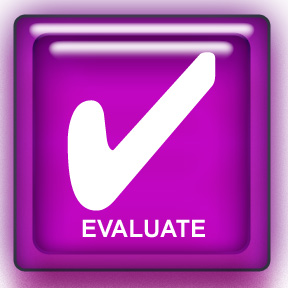
You’ve narrowed your search down to three franchises. All of them promise great support. How can you get a better idea of what you’ll really get from each of them?
That’s a great question. One of the main benefits of being in a franchise system is that you don’t have to figure everything out on your own. With a little research, you’ll find a wealth of information about levels of support. That information will help you pick the franchise system that’s right for you.
Before you get started, take a few minutes to think about the word “support” and what that looks and feels like to you. Does it mean someone holding your hand through the pre-opening phase, or does it mean someone handing you a manual and checklist and letting you go? Does it mean an “in-market” support person living in your market, or are you willing to accept less frequent visits from franchisor staff who fly in from a home office? The better you understand what’s important to you, the more likely you are to get it.
Next, check the UFOC for lawsuits, closures, and transfers of existing units. While not a direct indicator of level and quality of support, they can at least serve as an early warning system. If a company has high levels of lawsuits or closures, it’s a good indicator that you’ll want to look at everything a bit more closely – including support.
Then, review the list below to determine which items are most important to you. Once you’ve reviewed the list, start talking with the prospective franchisors and their existing franchisees. The more people you can talk to, the better. Also, look for support information in writing. Does the franchisor have manuals for training you? For training your employees? How often are they updated? Do people use them? If not, why not?
Remember that no franchise system is going to have everything. A young franchisor will often have fewer of these, and that’s why it may cost less to get into their system. A more mature franchisor will often have more of these, and that’s why it may cost more to get into their system. Here’s the list:
Protection of Intellectual Property
* Trademarks and copyrights
* Willingness and ability to protect intellectual property from infringement
Real Estate
* Verification of suitability of potential locations
* Preparation of construction documents
* Preparation of signage construction documents
* Relationships with contractors
* Lease negotiation
* Construction oversight
* Discounted pricing on materials
* Checklists to help keep you on track
Purchasing and Distribution
* Vendor screening
* Vendor negotiations
* Vendor management
* Getting the product to you
* Getting it to you at a cheaper price than you could on your own
Marketing
* Clear, intelligent marketing and advertising plan
* Branded marketing and advertising materials
* Ability to produce custom materials for you if needed; how much does it cost, and how long does it take?
* Development of a marketing plan for your business
* Guidance to help you maximize your return on investment on marketing dollars
* Grand opening support
* Regularly-scheduled marketing coaching
* Discounted pricing for media and printing
* Advertising cooperatives
Operating Systems
* Outlines the standard procedures for running your business. Usually in manual form.
Training Systems
* Initial training at the franchisor’s training location how long? How good will you be when you’re done?
* Ongoing pre-opening training; does the franchisor have pre-approved training locations, either franchisee or company-owned, where you can continue practicing what you learned at your initial training?
* Grand Opening Training; does someone come out to help you make the last push to get your business open? How long do they stay? How long have they been with the company and what is their level of experience?
Business Operations
* Visits from franchisor staff. How often do you see someone? What happens when they come?
* Back office support staff
* Maximizing profitability
* Budgeting and forecasting
* Local, Regional, National, and/or International workshops and conferences
* Trademarks and copyrights
* Willingness and ability to protect intellectual property from infringement
Enforcement of Standards
* How clearly do they communicate standards? Are they written down? Talked about regularly?
* Is there a clear, objective system for measuring compliance to standards?
* How often are standards checked to verify compliance?
* Once a franchisee or vendor is found to be in non-compliance, what action does the franchisor take, and how quickly do they take it?
* Do they leave flexibility for innovation within acceptable guidelines?
This article is contributed by: Franchise Genius
FranchiseGenius.com is the largest, most comprehensive online directory of franchise concepts, with 1,700+ concepts summarized, and includes a franchise resource center full of objective and useful information.
Categories